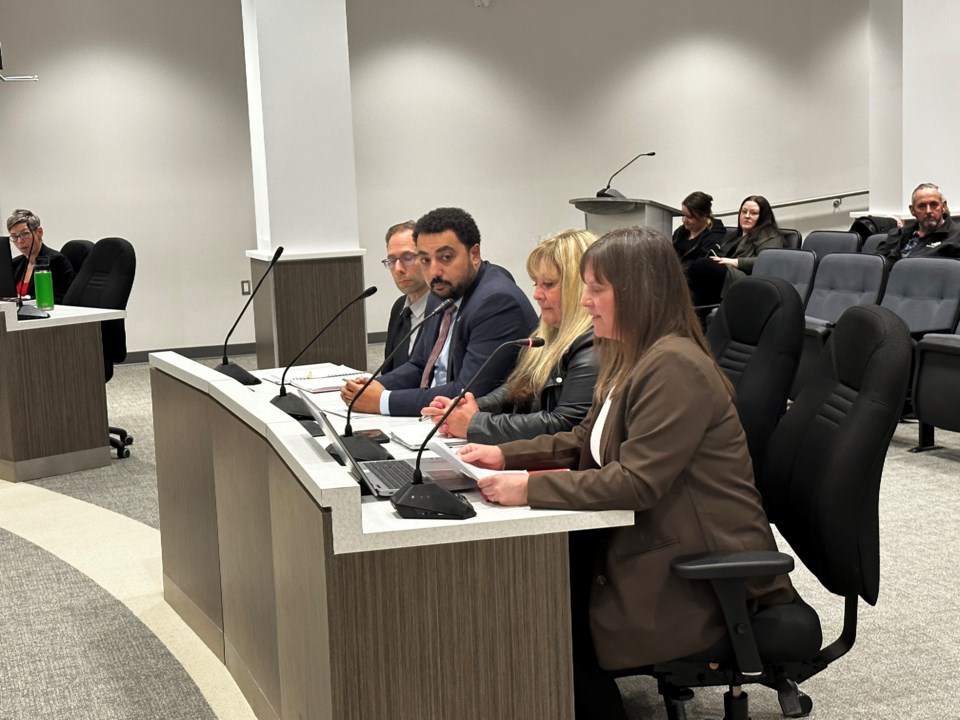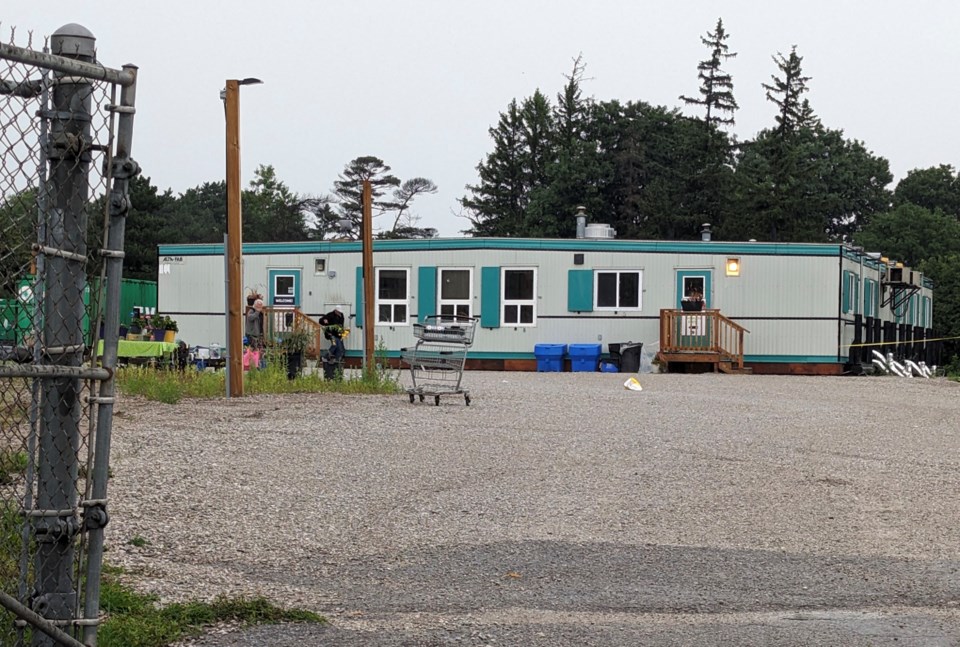City politicians have agreed to bring a temporary supportive rapid re-housing program (SRRP) facility to Orillia, in partnership with the County of Simcoe, but the question of the portable facility’s location has yet to be answered.
With the goal of transitioning the city’s unhoused population to permanent housing, the temporary structure — composed of portable, modular units — will include sleeping rooms, shared washroom facilities with showers, a shared kitchen and laundry, and the potential for 24-hour staffing.
Similar to the Rose Street project in Barrie, the Orillia project aims to support 20 to 40 individuals in its first year, and up to 200 people through its five-year duration.
“The SRRP program supports the rapid movement of people from situational homelessness to permanent housing, and participants are low- to moderate-acuity — low risk,” said the city’s housing coordinator, Janette McGee.
“This program, if council agrees, will help free up emergency shelter beds at the Lighthouse and assist those living outside to find shelter space, which helps alleviate the encampments in our city,” said McGee.
At Monday’s council meeting, city staff suggested placing the temporary housing facility at either Morningstar Park, Murray Street Park or the vacant parcel at Frontier Park — suggestions that numerous council members and members of the attending public spoke against.
“I want to start by saying I'm a huge supporter of the idea of temporary housing beyond the offer to those who need it, especially in winter,” said resident Melissa McLeish, who spoke during the open public forum portion of the meeting.
“Having said that, I need to be transparent and say my three-year-old son and his daycare friends all play in Frontier Park … and Murray Street Park multiple times a week.”

McLeish also highlighted the lack of services near the two proposed parks, from groceries, to mental health services, to healthcare, and more — suggesting an array of alternative locations for the facility, like the former OPP property at 66 Peter St. N., the vacant property at the former Huronia Regional Centre, and more.
Coun. Whitney Smith was one of several councillors who spoke against bringing the program to city parks, raising questions about the background of individuals who might utilize the program and how the program could impact the surrounding neighbourhoods.
“I mean, are there sex offenders potentially living in the homeless community? How do we know that they're then not going to be in neighbourhoods and parks and schools?” she said.
Later in the meeting, Smith also spoke to the “investment” that property owners have put into their neighbourhoods.
“The average cost of a home in Orillia is $607,000. If you invest (that) you're looking for certain things in that neighbourhood. You're looking for parks, you're looking into schools, you're looking for … mature trees, all the great things,” said the first-term Ward 1 councillor.
“At the end of the day, I would not support it being in a park because somebody has chosen to put their investment into Orillia and into these neighbourhoods, and I just don't think that's fair or good to do.”
Other council members discussed potential alternative locations — such as the site of the former OPP detachment on Peter Street, the HRC, and the city’s employment lands in west Orillia — with city staff and county officials highlighting difficulties with each.
With 66 Peter St. N. slated for a new transit terminal in the coming years, putting the program on that property could create issues, city staff said, while also noting the city’s employment lands cannot be used for the program.
The Huronia Regional Centre, similarly, would require lengthy discussions with the provincial government, which could impact the project’s tight timelines.
Mina Fayez-Baghat, the county’s general manager of social and community services, said federal funding for the project relies on project spending occurring before the end of March.
“This was end of year surplus funding for this fiscal year, meaning it has to be fully spent, and on its way here before March 31,” he said. “That doesn't mean it has to be fully implemented and program running and installed by March 31, but it has to be fully demonstrated.”
After nearly 40 minutes of discussion, during which councillors Janet-Lynne Durnford and Jay Fallis supported bringing the project to Morningstar Park, council voted to form a working group to discuss potential locations.
Formed of Smith, Durnford, and councillors Jeff Czetwerzuk and Ralph Cipolla, the working group will return to the March 4 council meeting after investigating potential land for the project.
On Monday, council also agreed to commit $100,000 in city funds toward associated fees, development charges, service connections, and lot grading requirements, with the county footing the bill for the capital costs and managing a financial agreement with a service provider for its operating costs.
